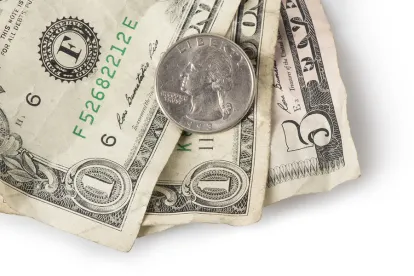Following extensive publicity regarding large or publicly-traded businesses that have received loans under the Paycheck Protection Program (PPP), on April 23, 2020 the SBA added a new question and answer to its Frequently Asked Questions relating to the PPP. Recipients of PPP funds should carefully review the newly-added Question 31 as detailed below.
31. Question: Do businesses owned by large companies with adequate sources of liquidity to support the business’s ongoing operations qualify for a PPP loan?
Answer: In addition to reviewing applicable affiliation rules to determine eligibility, all borrowers must assess their economic need for a PPP loan under the standard established by the CARES Act and the PPP regulations at the time of the loan application. Although the CARES Act suspends the ordinary requirement that borrowers must be unable to obtain credit elsewhere (as defined in section 3(h) of the Small Business Act), borrowers still must certify in good faith that their PPP loan request is necessary. Specifically, before submitting a PPP application, all borrowers should review carefully the required certification that “[c]urrent economic uncertainty makes this loan request necessary to support the ongoing operations of the Applicant.” Borrowers must make this certification in good faith, taking into account their current business activity and their ability to access other sources of liquidity sufficient to support their ongoing operations in a manner that is not significantly detrimental to the business. For example, it is unlikely that a public company with substantial market value and access to capital markets will be able to make the required certification in good faith, and such a company should be prepared to demonstrate to SBA, upon request, the basis for its certification.
Lenders may rely on a borrower’s certification regarding the necessity of the loan request. Any borrower that applied for a PPP loan prior to the issuance of this guidance and repays the loan in full by May 7, 2020 will be deemed by SBA to have made the required certification in good faith.
The answer applies to all borrowers. Even though the example applies to public companies, all borrowers are required to take into account their current business activity and their ability to access other sources of liquidity sufficient to support their ongoing operations in a manner that is not significantly detrimental to the business.
We expect that the forgiveness portion of the loan will include an audit of the loan amount, eligibility and now necessity for the loan. It is unclear how the SBA will interpret "access to other sources of liquidity" and "not significantly detrimental to the business." Taking an aggressive position, the SBA could interpret these terms to require borrowers to draw on lines of credit or obtain funds from liquid parents before applying for a PPP.
Importantly, Question 31 allows a borrower that has obtained a PPP loan prior to today's date to repay the loan by May 7, 2020.




 />i
/>i

